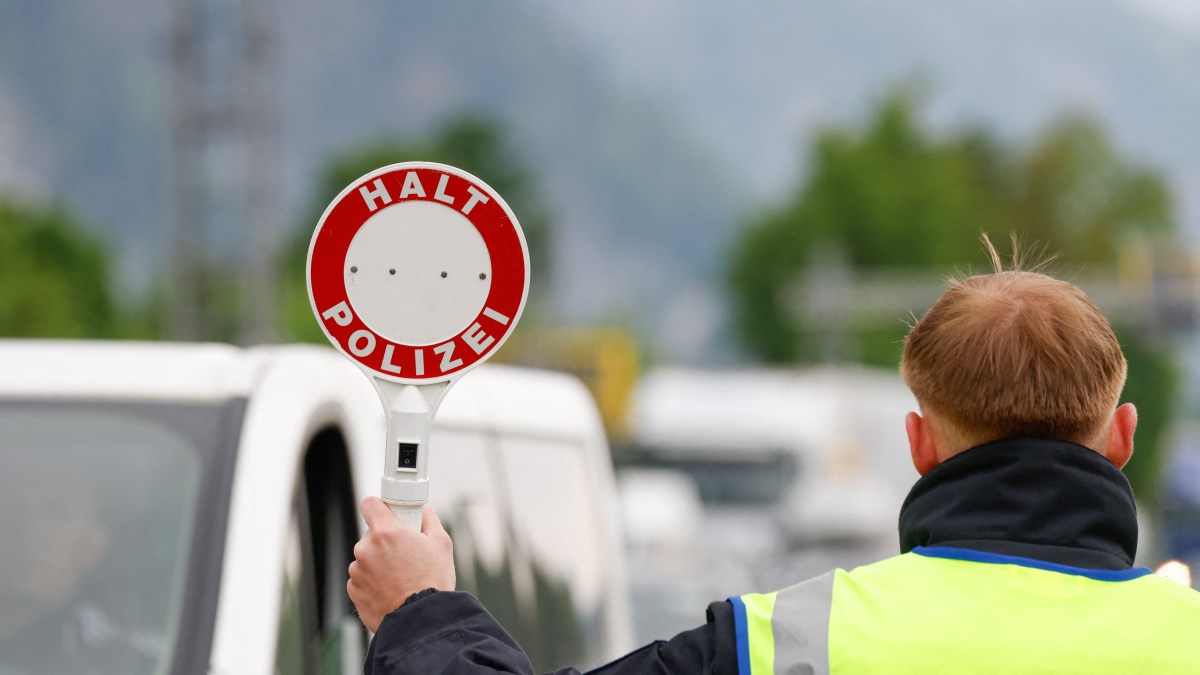The German government has hailed a drop in first-time asylum seekers entering the country as proof its tough migration policies work, despite accusations they undermine European Union rules.
The number of initial asylum applications halved in the first six months of the year, falling from 140,783 between January and July last year to 70,011 in the same period this year.
“We have massively reduced the number of initial asylum applications compared to last year,” said Alexander Dobrindt, the German interior minister.
The success in reducing illegal migration and stepping up deportations is largely seen as a litmus test for Friedrich Merz’s conservative-led coalition as Germany pushes hard for the EU to toughen up deportation rules with reduced appeals for failed asylum seekers and a crackdown on illegal migration.
“We want procedures at the EU’s external borders, faster decisions and consistent returns,” Dobrindt told the Bild am Sonntag newspaper.
“We are declaring an even tougher fight against the smugglers, because the state must regulate who comes into our country, not the criminal smuggling gangs.”
• Holy orders vs EU borders: how ‘church asylum’ is blocking deportations
Friedrich Merz, the German chancellor, has been pushing for the EU to toughen up rules around migration
MICHELE TANTUSSI/GETTY IMAGES
EU figures show that Spain overtook Germany in May as the top destination for asylum seekers, after the number of Syrians seeking refugee status declined following the fall of the Assad regime. In Germany, overall asylum claims dropped by about half to 9,900, from 18,700 filed in May 2024.
Another cause for the drop has been the controversial introduction of frontier controls allowing asylum seekers without valid entry documents to be turned away at the German border, one of Merz’s key election pledges and first measures in government earlier this year.
The measures have undermined the EU’s passport-free Schengen travel zone, involving checks on the borders of neighbouring Poland, Denmark, the Netherlands, Austria, Switzerland, Luxembourg, France and the Czech Republic.
• Merz agrees to close loophole exploited by Channel people smugglers
On Sunday, Poland extended checks until October after introducing similar controls in July under pressure from right-wing vigilante groups who began stopping suspected illegal immigrants at unofficial and illegal checkpoints.
German federal police check cars at the border with Austria
MICHAELA STACHE/AFP/GETTY IMAGES
Illegal migration has become a divisive topic across the EU, and in Germany in particular, where the hard-right, nationalist Alternative for Germany (AfD) party continues to come second in the opinion polls.
Polling released on Sunday put the AfD up to 25 per cent, closely behind Merz’s Christian Democratic Union on 27 points as support for his coalition fell to 42 per cent.
• Friedrich Merz: Germany ‘cannot cope’ with asylum seekers
Merz is pushing, alongside Italy and Denmark, for the EU to make it easier to deport those whose refugee claims are rejected.
EU figures show that up to 80 per cent of failed asylum seekers ordered to leave countries have not been deported, including some dangerous criminals and terror suspects who have gone on to carry out attacks.
Plans to fast-track the deportation of asylum seekers to “safe countries” have hit a legal snag following a ruling in the European Court of Justice last Friday, which set stringent new conditions making it harder for countries to deport migrants.
The Court of Justice of the European Union said EU nations may only create national lists of safe countries outside the bloc if they fully justify their assessments with public sources.
According to the court, a country can only be considered “safe” for repatriation if “the entire population” is protected across all regions.
“The room for manoeuvre of the member states is increasingly being restricted by the jurisprudence of the European Court of Justice,” warned Professor Christian Hillgruber, of the University of Bonn.
“This is highly problematic from a democratic and constitutional perspective.”


